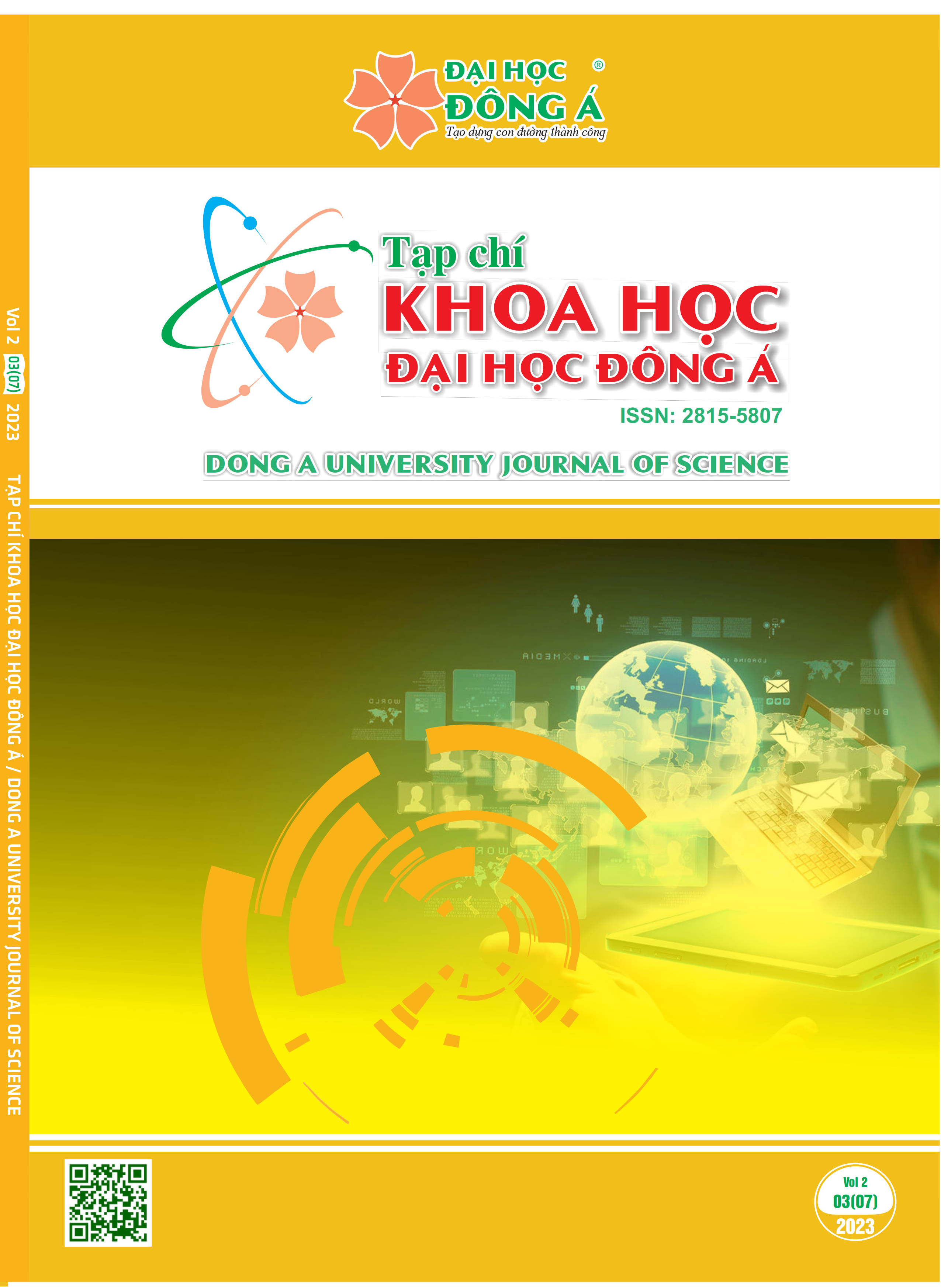Assessment of Tourists and Tourism Students on the Importance of Soft Skills and Communication Skills in Tourism Activities
Main Article Content
Abstract
The tourism sector is growing strongly, contributing significantly to the economy and society of a country, improving the quality of tourism services and providing a good experience for visitors is becoming extremely important. For the tourism workforce, not only proficiency in professional knowledge is required, but also soft skills and communication skills are required. In this study, we used SPSS 25.0 software to perform statistics and analyze the characteristics of the study sample, based on data collected from the survey of visitors and travel students. To ensure the reliability of the scale, we analyzed and used Cronbach’s Alpha coefficient. At the same time, we also apply the T-test method and ANOVA one-way to compare views between the group of visitors and students on a number of demographic variables. Research results have shown that both tourists and tourism students greatly appreciate the importance of soft skills and communication skills in tourism activities. This has important implications for the training and development of human resources in the tourism industry, where both skills play an important role in providing quality tourism services and creating satisfaction for visitors.
Article Details
Keywords
communication skills, soft skills, travel experience, tourists, tourism students
References
Brownell, J. (2009). “Fostering service excellence through listening: What hospitality managers need to know”. Cornell Hospitality Report. Vol. 9, No. 6, 6-18.
Coffelt, T.A., Baker, M.J., and Corey, R.C. (2016). “Business communication practices from employers’ perspectives”. Business and Professional Communication Quarterly, Vol. 79, No. 3, 300-316.
Conrad, D., Newberry, R. (2012). “Identification and Instruction of Important Business Communication Skills for Graduate Business Education”. Journal of Education for Business, Vol. 87, No. 2, 112-120.
Hair, J. F. (2009). Multivariate data analysis.
Jackson, D. (2014). “Business graduate performance in oral communication skills and strategies for improvement”. The International Journal of Management Education. Vol. 12, No. 1, 22-34.
Jiang, L. and Alexakis, G. (2017). “Comparing students' and managers' perceptions of essential entry-level management competencies in the hospitality industry: An empirical study”. Journal of Hospitality, Leisure, Sport & Tourism Education. Vol. 20, 32-46.
Jones, C.G. (2011). “Written and computer-mediated accounting communication skills: An employer perspective”. Business Communication Quarterly. Vol. 74, No. 3, 241-271.
Lolli, J. (2013). “Perceptions of the importance and preparedness of interpersonal communication skills of the entry-level hospitality leader: Implications for hospitality educators”. Journal of Teaching in Travel & Tourism. Vol. 13, No. 4, 354-373.
Nunnally, J.C. (1978). Psychometric theory. 2nd Edition, McGraw-Hill, New York.
Robles, M.M. (2012). “Executive Perceptions of the Top 10 Soft Skills Needed in Today’s Workplace”. Business Communication Quarterly. Vol. 75, No. 4, 453-465.
Siddiq, F., Scherer, R., and Tondeur, J. (2015). “Teachers’ Emphasis on Developing Students’ Digital Information and Communication Skills (TEDDICS): A New Construct in 21st Century Education”, Computers & Education. No. 92-93, 1-14.
Succi, C. and Canovi, M. (2019). “Soft skills to enhance graduate employability: Comparing students and employers perceptions”. Studies in higher education. 1-14.
Wall, E.A. and Berry, L.L. (2007). “The combined effects of the physical environment and employee behavior on customer perception of restaurant service quality”. Cornell Hotel and Restaurant Administration Quarterly. Vol. 48, No. 1, 59-69.
Weber, M.R., Lee, J.J. and Crawford, A. (2019). “A suggested best practices for enhancing performance of soft skills with entry-level hospitality managers”. Anatolia: An International Journal of Tourism and Hospitality Research. Vol. 31, No. 1, 76-87.
Wesley, S.C., Jackson, V.P. and Lee, M. (2017). “The perceived importance of core soft skills between retailing and tourism management students, faculty and businesses”. Employee Relations. Vol. 39, No. 1, 79-99.
Wu, Y.C., Tsai, C.S., Hsiung, H.W., and Chen, K.Y. (2015). “Linkage between frontline employee service competence scale and customer perceptions of service quality”. Journal of Services Marketing. Vol. 29, No. 3, 224-234.
Youssef, F. (2017). “The Role of Faculties of Tourism and Hotel Management in Developing the Etiquette and Communication Skills for Students within the Educational Community”. International Journal of Heritage, Tourism and Hospitality. Vol. 11, No. 3, 87-102.
Zehrer, A. and Mössenlechner, C. (2009). “Key competencies of tourism graduates: The employers' point of view”. Journal of Teaching in Travel & Tourism. Vol. 9, No. 3-4, 266-287.


